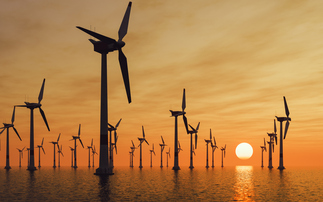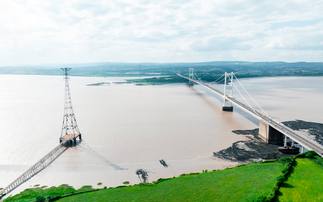Averil Macdonald's suggestion women oppose fracking because they don't understand it only harms the shale gas industry she is trying to champion
When it comes to public relations blunders, the UK's shale gas industry is the gift that keeps on giving. Hot on the heels of self-defeatingly redacted reports, arrests of peacefully protesting MPs, and hysterically optimistic predictions about a fracking bonanza that resolutely refuses to materialise, today we received another present from new UKOOG chairwoman Averil Macdonald and her suggestion women are more likely to oppose fracking because they are less likely to understand it than men.
Demonstrating the kind of public relations nous that would make even Donald Trump wince, Macdonald responded to a Nottingham University poll showing 31.5 per cent of women back fracking compared to 58 per cent of men by blaming women's lack of science education for the results.
"Frequently the women haven't had very much in the way of a science education because they may well have dropped science at 16. That is just a fact," she told the Times.
As a result women are more likely to trust their gut instinct, she continued. "Not only do [they] show more of a concern about fracking, they also know that they don't know and they don't understand. They are concerned because they don't want to be taking [something] on trust. And that's actually entirely reasonable."
Yes, it absolutely is a fact that too few women study science at A-Level and university. I, for one, bitterly regret dropping Physics after GCSE despite the A*.
But the suggestion opposition to fracking is down to a lack of scientific expertise is an insult to all the women and men who have analysed the environmental, economic, and political implications of building a fracking industry in the UK and concluded the risks outweigh the benefits.
Does Macdonald really think my lack of a science-based PhD means I am unable to understand the technical and economic challenges of delivering shale gas? Perhaps the same could be said of Green MP Caroline Lucas, who was arrested in Balcombe fracking protests in 2013. Did her literature PhD really deny her the analytical skills required to understand the reams of evidence on the risks associated with shale gas development? Similarly, was millionaire entrepreneur Deborah Meaden a victim of her hormones when she said she would never put her money into fracking?
For what it is worth, I am not completely opposed to fracking, and agree with the Committee on Climate Change that in theory it could act as a bridging technology, replacing coal and oil as we transition to a low carbon economy. But I do have major concerns about the feasibility of delivering steep emissions reductions while scaling up and then scaling down a UK fracking industry that has yet to get off the ground and continues to present safety concerns.
Although, presumably Macdonald would argue my fears are a result of women being less likely to be persuaded by facts than men. "[Men] will say, 'fair enough, understand'," she reflected. "But women, for whatever reason, have not been persuaded by the facts. More facts are not going to make any difference. What we have got to do is understand the gut reaction, the feel. The dialogue is more important than the dissemination of facts."
What Macdonald is acknowledging here is that the fracking industry has an image problem that is particularly acute with women. And yes, that is a fact. Frackers do need to build public confidence if they are to ever allay fears about big trucks and flaring. But I'm not sure how publicly musing on lazy sexist stereotypes is really going to help deliver on that aim.
Perhaps the reason the fracking industry is clutching at these straws is because it is struggling to grasp the true scale of the public relations challenge it faces. Macdonald's assertion a resolutely masculine acceptance of 'facts' drives acceptance of fracking fails to acknowledge government polling that shows the more people know about fracking the more likely they are to oppose it. More than half of those people who know a lot about fracking oppose it, falling to 35 per cent among those who know a little about it, the Department of Energy and Climate Change found in its latest poll. In fact, it concluded "the only group to be more supportive are those that haven't heard of fracking".
So why are women more likely to oppose fracking than men? Perhaps, scientific education has something to do with it, but then again surveys have also shown women are more likely to be concerned about the impacts of climate change than men. Could it be women are more likely to be concerned about the fracking's expansion in the UK because they better understand climate science?
Ultimately, fracking is not a feminist issue. And neither is energy policy more broadly. These lazy and reductive stereotypes help no one.
Forget about whether men or women better "understand" the pros and cons of fracking. I'd be much more interested to know how many of the men and women running our government understand them. How does the Prime Minister and Chancellor expect the UK to "go all out for shale" when we have yet to deliver a single productive well and still have no idea how much shale gas can be profitably extracted, if any? Do ministers understand renewable energy either? Having decided to block the construction of new onshore wind farms, which are the cheapest form of low carbon energy, and launched an all-out assault on solar energy it is hard to understand how Ministers will deliver on climate change targets at the lowest possible cost as they have promised.
The lack of any clear decarbonisation strategy has put 1,000s of clean energy jobs at risk, while plans to deliver a domestic fracking industry have blundered from one PR crisis to the next. I'm struggling to understand how any of this adds up to a coherent decarbonisation strategy and starting to worry the government's commitment to the Climate Change Act is wavering. But maybe that's just me being a typical women and relying on my gut instinct.









